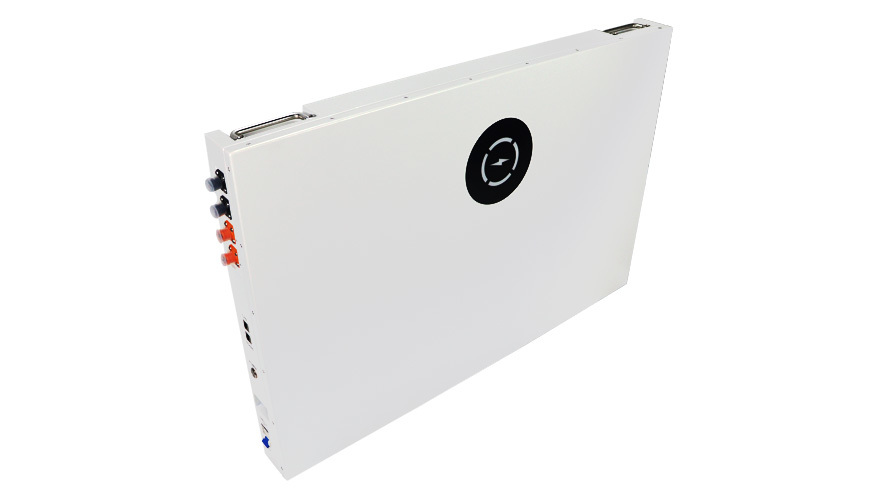The Integral Function of 5kWh BESS Modules in Fortifying Grid Stability
The Integral Function of 5kWh BESS Modules in Fortifying Grid Stability
Table of Contents
1. Introduction to 5kWh BESS Modules
2. What is a Battery Energy Storage System (BESS)?
3. Importance of Grid Stability in Modern Energy Systems
4. The Role of 5kWh BESS Modules in Enhancing Grid Stability
5. Benefits of Implementing 5kWh BESS Modules
6. Challenges in Integrating 5kWh
2025-06-13

The Integral Function of 5kWh BESS Modules in Fortifying Grid Stability
Table of Contents
- 1. Introduction to 5kWh BESS Modules
- 2. What is a Battery Energy Storage System (BESS)?
- 3. Importance of Grid Stability in Modern Energy Systems
- 4. The Role of 5kWh BESS Modules in Enhancing Grid Stability
- 5. Benefits of Implementing 5kWh BESS Modules
- 6. Challenges in Integrating 5kWh BESS Modules into the Grid
- 7. Future Trends in BESS Technology
- 8. Conclusion
1. Introduction to 5kWh BESS Modules
In the evolving landscape of energy production and consumption, the **5kWh Battery Energy Storage System (BESS)** modules represent a significant innovation. These systems not only support renewable energy sources but also ensure grid reliability and stability. As we explore the intricacies of BESS, we will highlight their essential role in enhancing grid performance.
2. What is a Battery Energy Storage System (BESS)?
Battery Energy Storage Systems are critical components in modern energy infrastructure, designed to store electrical energy for later use. These systems can efficiently balance supply and demand, contributing to grid stability. A **5kWh BESS** is specifically tailored to provide short-duration energy storage, making it suitable for various applications, including residential, commercial, and industrial settings.
2.1 Key Components of BESS
The primary components of a BESS include:
- **Batteries:** Store electrical energy in chemical form.
- **Inverters:** Convert DC energy from batteries to AC energy for grid compatibility.
- **Energy Management Systems (EMS):** Control and optimize the operation of the BESS, ensuring efficient energy flow.
3. Importance of Grid Stability in Modern Energy Systems
Grid stability is paramount for ensuring a reliable power supply to end-users. An unstable grid can lead to outages, voltage fluctuations, and even system failures. The importance of grid stability can be summarized in several key points:
3.1 Economic Implications
A stable grid promotes economic growth by attracting businesses that rely on uninterrupted power supply. Industries can operate efficiently, leading to increased productivity and profitability.
3.2 Environmental Considerations
With the push towards renewable energy sources, maintaining grid stability becomes crucial. Integrating renewable sources like solar and wind can lead to fluctuations in power generation. BESS modules help mitigate these fluctuations, allowing for a more sustainable energy landscape.
4. The Role of 5kWh BESS Modules in Enhancing Grid Stability
The integration of 5kWh BESS modules serves multiple functions in enhancing grid stability:
4.1 Load Balancing
These modules can absorb excess energy during periods of low demand and release it during peak periods, effectively balancing the load on the grid. This capability reduces the risk of overloads and blackouts.
4.2 Frequency Regulation
5kWh BESS modules provide real-time frequency regulation by adjusting the output based on grid requirements. They can quickly respond to frequency deviations, helping maintain the grid’s operational integrity.
4.3 Integration of Renewable Energy
Renewable energy sources, while beneficial, can introduce volatility to the grid. 5kWh BESS modules smooth out these fluctuations, allowing for a higher penetration of renewables without compromising grid stability.
5. Benefits of Implementing 5kWh BESS Modules
The advantages of integrating 5kWh BESS modules into the energy system are manifold:
5.1 Enhanced Reliability
By providing backup power during outages and maintaining grid stability, BESS modules enhance the overall reliability of the power supply.
5.2 Economic Savings
Energy storage can reduce the need for expensive peak power plants, resulting in significant cost savings for utilities and consumers alike. Furthermore, leveraging stored energy during high-demand periods can lower electricity bills.
5.3 Increased Energy Independence
With the capability to store generated energy, consumers can rely less on the grid, promoting energy independence and resilience.
6. Challenges in Integrating 5kWh BESS Modules into the Grid
Despite their advantages, integrating 5kWh BESS modules poses several challenges:
6.1 Technical Challenges
The technical integration of BESS into existing grid systems requires advanced technologies and expertise. Compatibility issues with different grid architectures can arise, necessitating careful planning and implementation.
6.2 Regulatory and Policy Barriers
Regulatory frameworks may not yet be fully equipped to support the widespread adoption of BESS technology. Policymakers must develop updated regulations that facilitate integration while ensuring safety and efficiency.
6.3 Economic Viability
The initial capital investment in BESS technology can be substantial. Although long-term savings are evident, upfront costs can deter some potential adopters.
7. Future Trends in BESS Technology
As the energy landscape continues to evolve, several trends are emerging in BESS technology:
7.1 Advancements in Battery Technology
Improvements in battery chemistry, such as lithium-sulfur and solid-state batteries, promise greater energy density, longer life spans, and reduced costs.
7.2 Growing Adoption of Smart Grids
The integration of smart grid technology will enhance the functionality of BESS modules. Real-time data analytics and AI can optimize energy management, improving grid performance.
7.3 Increased Investment in Renewable Energy
As the world shifts towards renewable energy sources, the demand for efficient energy storage solutions like BESS will continue to grow. This trend will drive innovation and wider adoption of BESS technology.
8. Conclusion
The role of 5kWh BESS modules in enhancing grid stability cannot be overstated. Their capability to balance loads, regulate frequency, and integrate renewable energy sources positions them as essential components of the modern energy ecosystem. As we look to the future, overcoming the challenges associated with their adoption will be crucial. With continued investment in technology and supportive policies, 5kWh BESS modules will play a vital role in achieving a sustainable, resilient, and stable energy grid.
Frequently Asked Questions (FAQs)
What is the capacity of a 5kWh BESS?
A 5kWh BESS can store 5 kilowatt-hours of electricity, equivalent to powering a typical home for several hours, depending on energy consumption.
How do 5kWh BESS modules improve renewable energy integration?
By storing excess energy generated from renewable sources, BESS modules mitigate fluctuations and provide a steady energy supply, facilitating higher renewable integration into the grid.
Are 5kWh BESS systems cost-effective?
While the initial investment may be significant, BESS systems can lead to long-term savings on energy costs, especially during peak demand periods.
What are the main applications of 5kWh BESS?
5kWh BESS modules are utilized in residential, commercial, and industrial applications for load shifting, backup power, and enhancing grid stability.
What challenges are faced in integrating BESS with the grid?
Key challenges include technical integration with existing systems, regulatory and policy barriers, and economic viability due to high upfront costs.
Key words:
Related News


